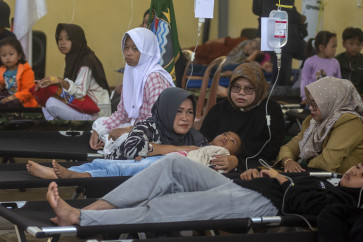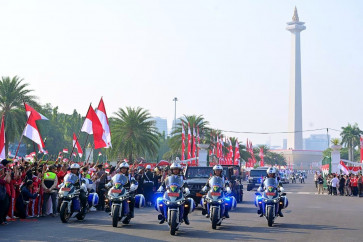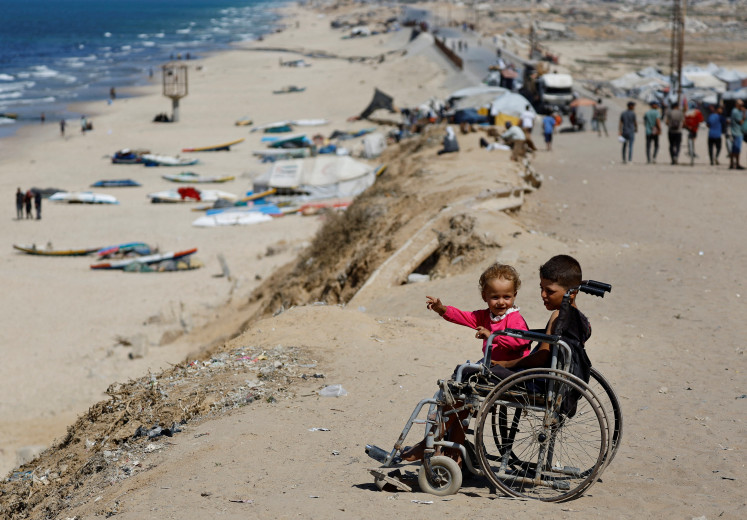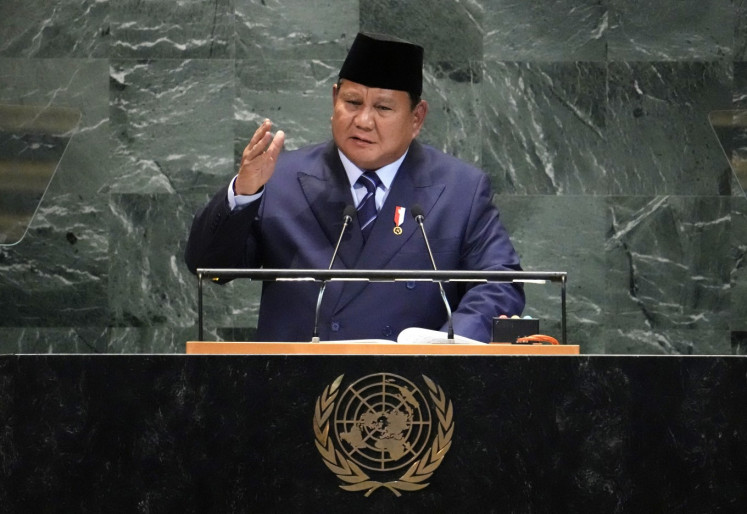Popular Reads
Top Results
Can't find what you're looking for?
View all search resultsPopular Reads
Top Results
Can't find what you're looking for?
View all search resultsStakeholders want RI vaccine self-sufficiency
State-owned pharmaceutical firm Bio Farma, the government and researchers met at a two-day forum in Jakarta to draft a roadmap on developing vaccine research for Indonesia to attain vaccine independence
Change text size
Gift Premium Articles
to Anyone
S
tate-owned pharmaceutical firm Bio Farma, the government and researchers met at a two-day forum in Jakarta to draft a roadmap on developing vaccine research for Indonesia to attain vaccine independence.
The forum, which started Monday, was attended by 300 participants from the company, government institutions including the Health Ministry, the National Education Ministry and the Research and Technology Ministry, and representatives from research universities such as the University of Indonesia and Brawijaya University.
Bio Farma president director Iskandar said that in the next three to four years, Indonesia would be flooded with vaccines imported mainly from China.
“We have to prepare for the upcoming condition. We want to work better with the government and researchers,” he said. “We still have several years to prepare. That’s why this forum is important.”
Bio Farma, which produces 199 vaccines that it exports to 110 countries, says Indonesia should build up local basic research on vaccine development.
As the only state-owned vaccine producer and one of 23 vaccine exporters certified by the World Health Organization, Bio Farma has manufactured vaccines for years based on basic research developed by several global biotechnology companies from Australia, Japan, the Netherlands and South Africa. All locally produced vaccines are manufactured based on local basic research.
He said developing local basic research was important to replace the “clinical development” of foreign vaccine research.
Health Ministry research and development head Ondri Dwi Sampurno blamed the slow development of vaccine research on communication gaps between the government and researchers.
Researchers don’t communicate regularly with the ministry, neither does Bio Farma, he said.
“I hope this forum can bridge the communication gap,” Ondri added.
He said the road map would focus on the tasks of the government, the company and researchers. “As we approach the deadline to achieve the MDGs [Millennium Development Goals] in 2015, we will focus on developing vaccines for communicable diseases such as HIV/AIDS, dengue fever, avian influenza and malaria,” Ondri said.
He said the ministry was prepared to spend Rp 35 billion (US$4.1 million) next year to fund vaccine research.
“We can seek additional funds if more researchers give us their proposals and the funds are not enough,” Ondri added.
Bio Farma media relations officer Nurlaela said a lack of financial resources was not the main problem in developing vaccine research, adding that the company had spent Rp 100 billion per year to finance research.
“The problem was that we did not receive many research proposals. The money was not effectively absorbed on research projects,” she said.
Brawijaya University researcher Aulanni’am said her team, led by senior researcher Sutiman B. Sumitro, had conducted research on a contraceptive vaccine for women. The study, funded by the Health Ministry and the National Education Ministry, began 12 years ago.
“The vaccine has undergone clinical trials and is ready for production,” she said. (lfr)










